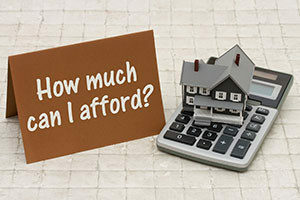 Like most Australians, you have set your sights to getting an investment property as part of your long-term financial strategy. The only problem is that property is getting more and more expensive.
Like most Australians, you have set your sights to getting an investment property as part of your long-term financial strategy. The only problem is that property is getting more and more expensive.
How do you know what to go for and how much you can afford to borrow to buy your (next) investment property?
Well, first you have to sit down and ask yourself a few serious questions:
Why do I want to buy a property investment?%22%20transform%3D%22translate(.6%20.6)%20scale(1.17188)%22%20fill-opacity%3D%22.5%22%3E%3Cellipse%20fill%3D%22%235e5f64%22%20rx%3D%221%22%20ry%3D%221%22%20transform%3D%22rotate(103.4%2051.8%20168.8)%20scale(39.84296%2062.51997)%22%2F%3E%3Cellipse%20fill%3D%22%23fff%22%20cx%3D%22215%22%20cy%3D%2230%22%20rx%3D%22100%22%20ry%3D%2264%22%2F%3E%3Cellipse%20fill%3D%22%23c5b055%22%20rx%3D%221%22%20ry%3D%221%22%20transform%3D%22rotate(-41.7%20126.5%20-44.6)%20scale(33.97034%2036.74055)%22%2F%3E%3Cellipse%20fill%3D%22%23fff%22%20rx%3D%221%22%20ry%3D%221%22%20transform%3D%22matrix(-9.37942%2036.30876%20-74.9962%20-19.3733%20222.6%2030.2)%22%2F%3E%3C%2Fg%3E%3C%2Fsvg%3E)
Investing in real estate has been financially worthwhile for many Australians, so it is normal for people to want to get into the program. You want to buy a property because you want to increase your wealth and secure your financial future, then it is a good reason to invest your money in real estate. But before diving in, be aware of the common misconception that property investing could instantly deliver positive returns. You need to keep in mind that how effectively you manage your investment will determine whether or not the investment helps you reach your financial goals.
Like any investment, it’s best to be well-versed in the space before diving in, because properties in cities like Sydney can cost quite a sum of money.
%27%20fill-opacity%3D%27.5%27%3E%3Cellipse%20fill%3D%22%23adadad%22%20fill-opacity%3D%22.5%22%20rx%3D%221%22%20ry%3D%221%22%20transform%3D%22matrix(120.88134%20-13.34542%206.9254%2062.72957%2098.7%205.6)%22%2F%3E%3Cellipse%20fill%3D%22%23b0b0b0%22%20fill-opacity%3D%22.5%22%20rx%3D%221%22%20ry%3D%221%22%20transform%3D%22rotate(-107%20111%2021.8)%20scale(23.11626%2089.21163)%22%2F%3E%3Cellipse%20fill%3D%22%23ebebeb%22%20fill-opacity%3D%22.5%22%20rx%3D%221%22%20ry%3D%221%22%20transform%3D%22rotate(-172.8%20136.7%2041.5)%20scale(65.41309%20270.77589)%22%2F%3E%3Cellipse%20fill%3D%22%23e9e9e9%22%20fill-opacity%3D%22.5%22%20rx%3D%221%22%20ry%3D%221%22%20transform%3D%22rotate(-104.2%2063.9%2033.8)%20scale(27.42331%20129.54077)%22%2F%3E%3C%2Fg%3E%3C%2Fsvg%3E) Given my current financial situation, can I afford an investment loan?
Given my current financial situation, can I afford an investment loan?
The answer to the question of whether you can afford an investment property is a matter of first sorting out your priorities. If you’ve had an experience before in buying a property and are quite confident you have the spare cash to meet the new mortgage repayments, I’d say go ahead and invest.
But, make sure you are aware of taxes involved in property investing and add these into your calculations. You can consult a financial advisor about things like stamp duty, capital gains tax and land tax. Banks only take 80% of the rental income into account when working out whether you can afford an investment loan. This is due to costs like letting fees and vacancy rates, which you will incur, consider using this as a rule of thumb for you too.
It goes without saying that if you already have paid off your past investment loans, it will be much easier for you to secure another on from your lender.
You can use this calculator to get a general idea on how much you can borrow.
What do lenders look for before they give me an investment loan?%22%20transform%3D%22translate(.6%20.6)%20scale(1.17188)%22%20fill-opacity%3D%22.5%22%3E%3Cellipse%20fill%3D%22%23aa4f04%22%20rx%3D%221%22%20ry%3D%221%22%20transform%3D%22rotate(178.4%2031.9%2040.6)%20scale(73.71337%2043.9294)%22%2F%3E%3Cellipse%20fill%3D%22%23e7f3fe%22%20rx%3D%221%22%20ry%3D%221%22%20transform%3D%22rotate(93.9%2096%2093.1)%20scale(34.36187%20254.80352)%22%2F%3E%3Cellipse%20fill%3D%22%234c5a66%22%20rx%3D%221%22%20ry%3D%221%22%20transform%3D%22matrix(48.77852%20-3.6651%202.5326%2033.70623%20171.4%2093)%22%2F%3E%3Cellipse%20fill%3D%22%23dde9f5%22%20cx%3D%22155%22%20cy%3D%22154%22%20rx%3D%22255%22%20ry%3D%2220%22%2F%3E%3C%2Fg%3E%3C%2Fsvg%3E)
Lenders will evaluate how much you can borrow for a property investment based on five C’s: credit history, capacity, capital, condition and collateral.
Your credit history will be closely scrutinised by your chosen lender and as such, your record should be spotless if you want an investment loan. If you defaulted on your bills in the past, it won’t send a good image to your potential lender, and may prevent you from getting approved for a property loan.
Lenders will also check on your financial capacity to pay a mortgage. You need to prove that you have a stable source of income that can pay off your investment loan.
Having a substantial amount of capital in the bank also helps you look more appealing to lenders. You have to prove you have your assets are stored in liquid checking and savings accounts, so you can easily withdraw money to pay your mortgage bills if you need to. Investment and retirement accounts also count as assets, even if you can’t access them as easily.
Before you get approved to borrow money for your investment, lenders will check the conditions of the property you are planning to buy — state of the housing market and economy and what you’re planning on using this property for. They want to see what external factors could impact the value of your property and your ability to pay off your loan.
Lastly, lenders will assess the value of your assets because they can take it from you if you can’t pay off your mortgage. The will also check how much this property you’re eyeing us worth, if it could be valuable to them if the seize it the moment you default on your payments.
The general idea is that lenders will be more likely to approve bigger loans for people who are less risky. You are less likely to be allowed to borrow money if lenders will like you have a bigger risk of not being able to pay.
%22%20transform%3D%22translate(.6%20.6)%20scale(1.17188)%22%20fill-opacity%3D%22.5%22%3E%3Cellipse%20fill%3D%22%23b79d85%22%20cx%3D%2224%22%20cy%3D%2288%22%20rx%3D%2230%22%20ry%3D%22255%22%2F%3E%3Cellipse%20fill%3D%22%231a2024%22%20rx%3D%221%22%20ry%3D%221%22%20transform%3D%22matrix(22.32307%20-72.11418%2044.64866%2013.82107%20232.3%20141.2)%22%2F%3E%3Cellipse%20fill%3D%22%23c5651f%22%20rx%3D%221%22%20ry%3D%221%22%20transform%3D%22matrix(-14.54927%2025.89147%20-91.1317%20-51.2099%200%20149.5)%22%2F%3E%3Cellipse%20fill%3D%22%23a35200%22%20rx%3D%221%22%20ry%3D%221%22%20transform%3D%22matrix(1.8386%20-14.9742%2049.569%206.0863%20228.1%204.8)%22%2F%3E%3C%2Fg%3E%3C%2Fsvg%3E) Will my investment property yield sufficient returns?
Will my investment property yield sufficient returns?
Most people want to invest in real estate because they are expecting high returns, whether from rental or from reselling the property in the future. If that is your motivation for investing, it’s good to research into the area you’re thinking of buying in and find out what type of rental yield is realistic for the properties you are looking at and what type of tenants the area or quality of house will attract.
You’re probably familiar with the term ROI (Return On Investment) – an accounting term that indicates the percentage of invested money returned to an investor after the deduction of associated costs. For the non-accountant, this may sound confusing, but the formula is quite simple:
ROI = (Gain from Investment – Cost of Investment) / Cost of Investment
For example, a real estate property was bought for $1,000,000. After repairs and rehab of the property, which costs investors an additional $500,000, the property is then valued at $2,000,000, making the investors’ equity position in the property 2,000,000 – (1,000,000 + 500,000) = $500,000.
The cost method requires the dividing of the equity position by all the costs related to the purchase, repairs and rehab of the property.
ROI, in this instance, is .33 % – $500,000 divided by $1,500,000.
What ROI do you require and in what timeframe? Can you afford no or negative ROI in case the property finds no tenants for a period of time?
What kind of mortgage should I apply for?
There are many options when it comes to financing your investment property, so it’s best to ask a finance expert for advice in this area as it can make a big difference to your financial well-being. Interest on an investment property loan is generally tax deductible, but there are some borrowing costs that are not immediately deductible.
Structuring your loan correctly is critical and this should be done with the help of a trusted financial advisor. It’s best to avoid mixing up investment property loans with your home loan, so you can maximise your ongoing taxation benefits and reduce your accounting costs.
The choice between a fixed rate loan or a variable rate loan will depend on your circumstances, but consider both options carefully before you decide. Variable rates can be cheaper over time, but selecting a fixed rate loan at the right time can really pay off. Rates usually increase as property prices increase, and this can be a good thing on the capital gains front.
Most investment loans are set up as Interest Only (rather than Principal and Interest) because it increases the tax effectiveness of your investment, particularly if you have a home loan, but make sure you try and factor in flexibility. Interest Only loans work well for investment properties because your negative gearing benefit reduces as you pay down the amount of your loan. You may also want to seriously consider an investment loan that gives you the opportunity of paying interest in advance or has an Offset Account.
What will be the interest rate on my investment home loan?%27%20fill-opacity%3D%27.5%27%3E%3Cellipse%20fill%3D%22%239a1e33%22%20fill-opacity%3D%22.5%22%20rx%3D%221%22%20ry%3D%221%22%20transform%3D%22rotate(129.5%2023%2067.7)%20scale(32.48992%2042.75787)%22%2F%3E%3Cellipse%20fill%3D%22%23fff%22%20fill-opacity%3D%22.5%22%20rx%3D%221%22%20ry%3D%221%22%20transform%3D%22matrix(-29.61944%20-21.12734%2086.52475%20-121.30323%2016.8%2041.4)%22%2F%3E%3Cellipse%20fill%3D%22%23fff%22%20fill-opacity%3D%22.5%22%20rx%3D%221%22%20ry%3D%221%22%20transform%3D%22matrix(-14.72023%2014.78487%20-86.72377%20-86.34466%20135%20.5)%22%2F%3E%3Cellipse%20fill%3D%22%23fff%22%20fill-opacity%3D%22.5%22%20rx%3D%221%22%20ry%3D%221%22%20transform%3D%22matrix(54.75402%2013.58384%20-6.03189%2024.31346%2033.4%2021.8)%22%2F%3E%3C%2Fg%3E%3C%2Fsvg%3E)
The interest rate on your investment home loan will depend on which financial institution will grant your loan application. They will check your personal risk profile, the type of property you want to buy, and how long you want to repay your loan. Different banks have different rules on interest rates but in many cases, investment loans are similar to regular home loans. Investment loans just have stricter eligibility requirements as they present a higher risk to the lender.
It’s best to compare the interest rates available with your investment home loan. Rates have a large influence on your repayment size, so be sure to compare home loans and find one with the right rates, in addition to features and minimal fees. Also compare fixed and variable rates to find one which will suit your investment strategy. It’s no use getting a fixed rate for three years if you plan to sell your property in two for example.
It’s always good to be on the safe side, just in case interest rates increase, you won’t be immediately affected.
Unless you intend to negatively gear, it is typically best to make your investments cash flow positive as soon as possible.
Investing in real estate in a huge undertaking, so it is wise to seek the help of a buyers agent who can help you find a great property to buy, and a mortgage specialist who can assist you in getting an investment loan. These two key people can help you avoid many of the pitfalls in property investing and give you advice on how to get the most out of your investment loan.


 Given my current financial situation, can I afford an investment loan?
Given my current financial situation, can I afford an investment loan?
 Will my investment property yield sufficient returns?
Will my investment property yield sufficient returns?










